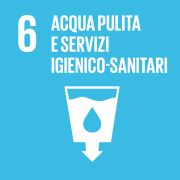
In-house IT companies in the public sector were created to contribute to the Public Administration ‘s objectives with greater flexibility in administrative, recruitment and procurement processes, and they attract talent in the field of technology, enabling them to make requests for tenders in line with the interests and goals of the PA for which they operate. They are familiar with the infrastructures, systems, software and processes of the PAs, guaranteeing continuity of services. In short, they are fundamental because they are able to contribute with technological and process innovation in shaping the vision of a citizen-centric Public Administration that meets today’s and future needs. And it is in order to address this key role that the Foundation for Digital Sustainability has drawn up the ‘Decalogue of In-Houses for Digital Sustainability‘: the ten-point document developed in collaboration with partner companies such as ACI Informatica, Lepida, Informatica Alto Adige and Trentino Digitale, which was presented on Thursday 20 March at an institutional meeting organised at the Press Room of the Chamber of Deputies on the initiative of theHon. Salvatore Deidda and theHon. Enzo Amich.
“Public Administration plays a key role in the digital transformation of the country and can become an essential enabler of digital sustainability. This conference is an opportunity to start a constructive debate on the most effective strategies to strengthen the role of ICT in-house companies in the PA, with the aim of fostering concrete collaboration for a sustainable and innovative digital future,” said Stefano Epifani, President of the Foundation for Digital Sustainability and moderator of the meeting. “In-house companies have a fundamental responsibility in ensuring that the digital transformation of the Public Administration takes place in a sustainable, efficient and inclusive manner. We cannot think about the digitisation of PA without considering sustainability as a central pillar of this process‘.
The digital sustainability of PA goes through In-house
“In-houses are essential to promote a culture of digital sustainability, supporting training and awareness-raising paths for a responsible use of digital technologies,” explained Gianluca Mazzini, General Manager of Lepida, during the conference, emphasising the importance of disseminating, at all levels, the ability to read and interpret a phenomenon as important as digital sustainability.
Furthermore, during the presentation, the strategic role of these companies in aligning with the Sustainable Development Goals (SDGs) of Agenda 2030 by promoting transparency, efficiency and inclusiveness emerged. They balance the needs of the PA, which is oriented towards public value, with those of vendors, which aim for fair economic recognition. “In-house companies are structured to optimise benefits for the community rather than to pursue profit, ensuring that digital sustainability generates economic and social value,” highlighted Kussai Shahin, General Manager of Trentino Digitale.
Digital sustainability in the public sector is not limited to the adoption of more efficient technologies, but implies responsible innovation, in which public value, security and inclusion are central. A strategic use of technologies must balance innovation and administrative effectiveness and, as Mauro Minenna, General Manager of ACI Informatica, emphasised, ‘In-house companies hold and manage a wealth of knowledge that allows them to guarantee the continuity of services and a constant maintenance of the digital skills necessary for the evolution of public infrastructures‘.
A Decalogue for In-house
Based on these considerations, the working group promoted by the Foundation has produced a declination of the Digital Sustainability Paper: a decalogue summarising the guiding principles for the role of in-house companies in the sustainable digitisation of PA.
In particular, as expressed in the document, in-house companies are strategic allies of the public administration in sustainable digitisation, offering solutions that are inclusive, transparent and oriented to the common good. Thanks to their flexibility and public nature, they then guarantee equal access to digital services, support strategic in-house functions – such as RTD and CISO – and ensure business continuity. They also act as a bridge between public demand and market supply, promote digital technologies in line with the SDGs and spread a culture of responsible digital use, contributing to the creation of a fair, efficient and sustainable ecosystem.
With this document, the Foundation’s working group invites all In-house companies to strengthen their commitment to the sustainability-oriented digital transformation of the Public Administration by taking a proactive and innovative role in promoting digital sustainability: only through an active and strategic collaboration with the PA will it be possible to realise projects that maximise the positive impact of digital technologies and contribute to the achievement of sustainable development goals.
















